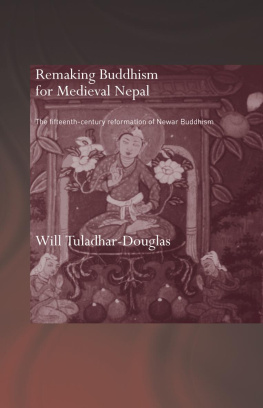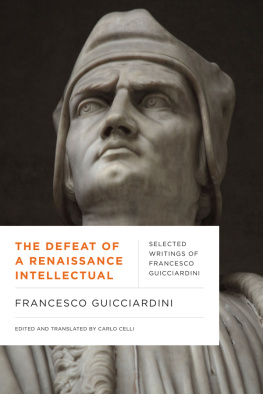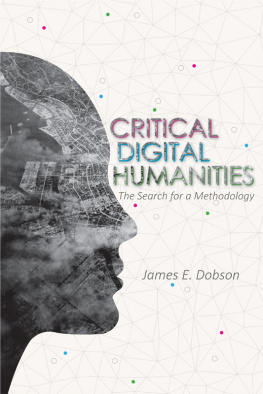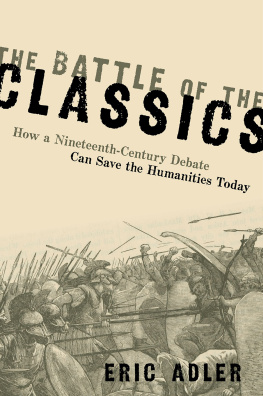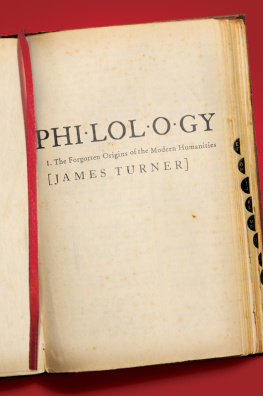
Francesco Robortello (15161567)
This book explores the intellectual world of Francesco Robortello, one of the most prominent scholars of the Italian Renaissance. From poetics to rhetoric, philology to history, topics to ethics, Robortello revolutionised the field of humanities through innovative interpretations of ancient texts and with a genius that was architectural in scope. He was highly esteemed by his contemporaries for his acute wit, but also envied and disparaged for his many qualities. In comparison with other humanists of his time such as Carlo Sigonio and Pier Vettori, Robortello had a deeply philosophical vein, one that made him unique not only to Italy, but to Europe more generally. Robortellos role in reforming the humanities makes him a constituent part of the long-fifteenth century. Robortellos thought, however, unlike that of other fifteenth-century humanists, sprung from and was thoroughly imbued with a systematic, Aristotelian spirit without which his philosophy would never have emerged from the tumultuous years of the mid-Cinquecento. Francesco Robortello created a system for the humanities which was unique for his century: a perfect union of humanism and philosophy. This book represents the first fully fledged monograph on this adventurous intellectual life.
Marco Sgarbi is Associate Professor in the History of Philosophy at the Ca Foscari University of Venice.
Routledge Studies in Renaissance and Early Modern Worlds of Knowledge
Series Editor:
Harald E. Braun
University of Liverpool
This series explores Renaissance and Early Modern Worlds of Knowledge (c.1400c.1700) in Europe, the Americas, Asia and Africa. The volumes published in this series study the individuals, communities and networks involved in making and communicating knowledge during the first age of globalization. Authors investigate the perceptions, practices and modes of behaviour which shaped Renaissance and Early Modern intellectual endeavour and examine the ways in which they reverberated in the political, cultural, social and economic sphere.
The series is interdisciplinary, comparative and global in its outlook. We welcome submissions from new as well as existing fields of Renaissance Studies, including the history of literature (including neo-Latin, European and non-European languages), science and medicine, religion, architecture, environmental and economic history, the history of the book, art history, intellectual history and the history of music. We are particularly interested in proposals that straddle disciplines and are innovative in terms of approach and methodology.
The series includes monographs, shorter works and edited collections of essays. The Society for Renaissance Studies (www.rensoc.org.uk) provides an expert editorial board, mentoring, extensive editing and support for contributors to the series, ensuring high standards of peer-reviewed scholarship. We welcome proposals from early career researchers as well as more established colleagues.
SRS Board Members: Erik DeBom (KU Leuven, Belgium), Mordechai Feingold (California Institute of Technology, USA), Andrew Hadfield (Sussex), Peter Mack (University of Warwick, UK), Jennifer Richards (University of Newcastle, UK), Stefania Tutino (UCLA, USA), Richard Wist-reich (Royal College of Music, UK)
Writing Southern Italy Before the Renaissance
Trecento Historians of the Mezzogiorno
Ronald G. Musto
Francesco Robortello (15161567)
Architectural Genius of the Humanities
Marco Sgarbi
For more information about this series, please visit: www.routledge.com/Routledge-Studies-in-Renaissance-and-Early-Modern-Worlds-of-Knowledge/book-series/ASHSER4043
First published 2020
by Routledge
52 Vanderbilt Avenue, New York, NY 10017
and by Routledge
2 Park Square, Milton Park, Abingdon, Oxon, OX14 4RN
Routledge is an imprint of the Taylor & Francis Group, an informa business
2020 Taylor & Francis
The right of Marco Sgarbi to be identified as author of this work has been asserted in accordance with sections 77 and 78 of the Copyright, Designs and Patents Act 1988.
All rights reserved. No part of this book may be reprinted or reproduced or utilised in any form or by any electronic, mechanical, or other means, now known or hereafter invented, including photocopying and recording, or in any information storage or retrieval system, without permission in writing from the publishers.
Trademark notice: Product or corporate names may be trademarks or registered trademarks, and are used only for identification and explanation without intent to infringe.
Library of Congress Cataloging-in-Publication Data
Names: Sgarbi, Marco, 1982 author.
Title: Francesco Robortello (15161567) : architectural genius of the
humanities / Marco Sgarbi.
Description: New York, NY : Routledge, 2020. | Includes bibliographical
references and index. | Summary: This book explores the intellectual
world of Francesco Robortello, one of the most prominent scholars of
the Italian Renaissance. From poetics to rhetoric, philology to history,
topics to ethics, Robortello revolutionized the field of humanities through
innovative interpretations of ancient texts and with a genius that was
architectural in scope. He was highly esteemed by his contemporaries for
his acute wit, but also envied and disparaged for his many qualities. In
comparison with other humanists of his time such as Carlo Sigonio and
Pier Vettori, Robortello had a deeply philosophical vein, one that made
him unique not only to Italy, but to Europe more generally. Robortellos
role in reforming the humanities makes him a constituent part of the
long-fifteenth century. Robortellos thought, however, unlike that of other
fifteenth century humanists, sprung from and was thoroughly imbued
with a systematic, Aristotelian spirit without which his philosophy would
never have emerged from the tumultuous years of the mid-Cinquecento.
Francesco Robortello created a system for the humanities which was
unique for his century: a perfect union of humanism and philosophy. This
book represents the first fully-fledged monograph on this adventurous
intellectual lifeProvided by publisher.
Identifiers: LCCN 2019028197 (print) | LCCN 2019028198 (ebook) |
ISBN 9780367224875 (hardback) | ISBN 9780429275159 (ebook) |
ISBN 9781000692822 (adobe pdf) | ISBN 9781000693188 (epub) | ISBN
9781000693003 (mobi)
Subjects: LCSH: Robortello, Francesco, 15161567. | HumanistsItaly
Biography. | IntellectualsItalyBiography.
Classification: LCC DG540.8.R63 S43 2020 (print) | LCC DG540.8.R63
(ebook) | DDC 001.3092dc23
LC record available at https://lccn.loc.gov/2019028197
LC ebook record available at https://lccn.loc.gov/2019028198
ISBN: 978-0-367-22487-5 (hbk)
ISBN: 978-0-429-27515-9 (ebk)
Typeset in Sabon
by Apex CoVantage, LLC
To Anna
This monograph is the result of seven years research on Francesco Robortello. My interest in Robortello started during my previous investigation into vernacular logical textbooks in Renaissance Italy, where I encountered some very interesting manuscripts on logic, Topics and rhetorics hitherto ignored by Renaissance scholars. I gradually became acquainted with Robortellos thought during my research year as fellow at Villa I Tatti, The Harvard University Center for Italian Renaissance Studies. In reading the secondary literature, however, I felt growing dissatisfaction with the way in which Robortellos intellectual character was generally depicted, as an arid humanist, meticulous philologian and exceptional as well as controversial university professor. His philosophical thought was completely neglected, buried under the idea that good humanists cannot be philosophers, only philologians. While engaged in reading and interpreting his manuscripts, some of them seriously damaged, I was struck by his originality as thinker and his genuine contribution to the history of late Renaissance and early modern thought, beyond the traditional field of literary criticism.


